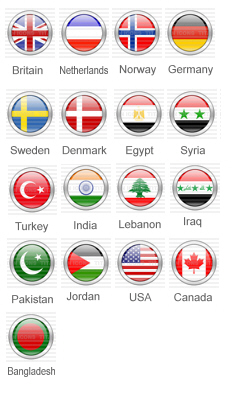International Resource Centre
Forms of ‘honour’ based violence and oppression
While killing in the name of ‘honour’ is the most discussed aspect of the phenomenon, this is only one aspect of a nexus of control over women’s lives. Women in ‘honour’ cultures may be subjected to constant surveillance, without which it is assumed they may transgress the honour code and bring the family into disrepute. This may imply that women from these cultures have little privacy at home, and few opportunities to socialise outside their kinship network. The family may try to restrict women’s movements to ensure they do not develop relationships outside the family or community grouping, meaning a reduction on women’s freedom of movement and association. Such an ethic of control may reduce women’s opportunities to take part in the social world, form relationships of their choosing, and to seek help in the event of violence or coercion. Women (and men) are expected to conform to the wishes of their elders who are presumed to be acting in for the greater good of the family as a whole; those who insist upon their autonomy are considered selfish and disruptive to the family, and its honour.
Where a perceived slight to the family ‘honour’ has occurred, responses vary, according to the family’s preferences and the public nature of the ‘dishonouring’ behaviour.
Forced abortion and hyment repair”
If a woman becomes pregnant before marriage, and this is unknown outside the family circle, it may be considered a better solution to procure an abortion and surgical hymen repair procedure than to commit a crime; however, if her condition is common knowledge, more severe responses may be required to quell negative responses from the community. Women’s consent to such medical procedures is acquired under duress, if it is acquired at all: it is impossible to make a free choice between an unwanted abortion and hymenoplasty and death at the hands of a relative. Such practises deny women’s sovereignty over their own bodies.
Abduction and imprisonment
Where women are subjected to violence at their hands of their families this may include abduction, if they have fled the family home to seek protection; within certain diasporic communities professional agencies exist dedicated to the location and retrieval of runaway women and girls. In other countries, the State may play a role: in Afghanistan, a girl running away from home is considered to have committed a criminal and may be imprisoned and returned into the hands of her family.
Imprisonment may also be part of a family’s strategy of control over a woman in order to keep her out of the public eye. This may be accompanied by threats and assaults, and may even be the prelude to violence, forced marriage or murder.
Forced marriage
In some cases, a woman who is perceived to have violated family honour may be forced into marriage. This has a double effect of saving face and increasing surveillance and control over her by increasing the number of persons who are able to control and police her behaviour. Such marriages may involve an undesirable spouse who is unable to contract a marriage by other means. Such marriages are often abusive and may be intended as a punishment against the woman as well as a means of restoring ‘honour’. Cultures in which ‘honour’ killings occur are very often those in which arranged marriages are expected, and the refusal to accept a marriage approved by the family may result in that same marriage being forced upon an unwilling person.
‘Honour’ suicide
Where ‘honour’ killings are robustly prosecuted, families may deploy a strategy of forcing women to kill themselves in order to remain technically innocent of murder. This is particularly associated with regions of Turkey; however, it may not be clear in any country whether an individual woman has committed suicide due to direct coercion, to spare her brother the jail sentence he might face as her murderer, whether an outright murder has been disguised as self-killing, or whether a woman has killed herself due to the unbearable pressures of the restrictions upon her life and her family’s disfavour or abuse.
‘Honour’ killings
‘Honour’ killings, as the ultimate sanction against a woman who has deemed to have offended collective morality may be a highly organised and premeditated crime, decided upon through a collective decision-making process involving a family ‘council’ meeting, in which the murder is planned to the last detail; alternatively, it may also be less organised, but still be supported by a wider collective than the apparent perpetrator. In either case, the risks to an individual are extremely high, and it may be beyond the capacity of mainstream domestic violence services to provide adequate protection.

